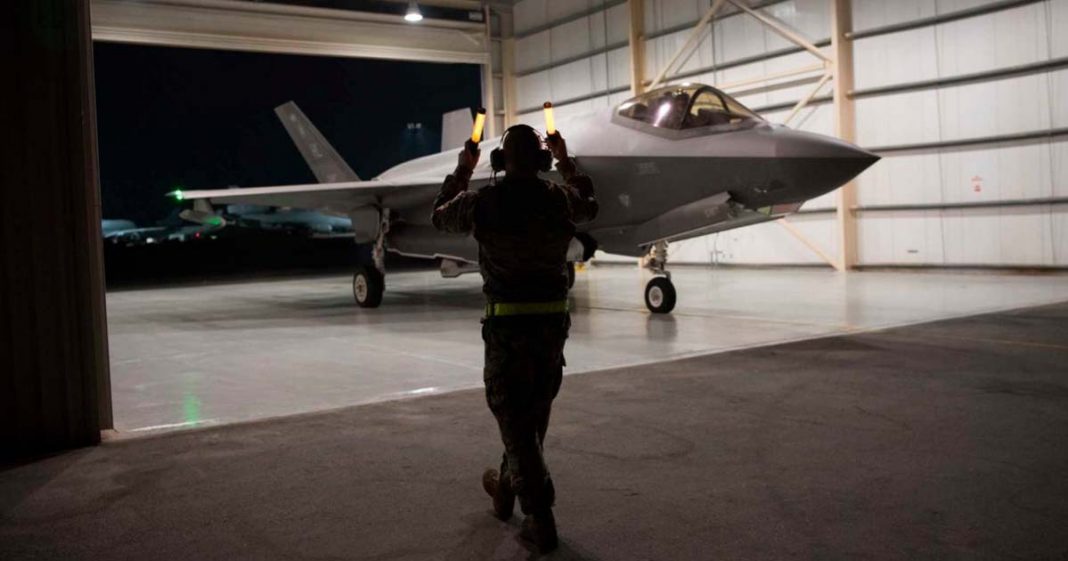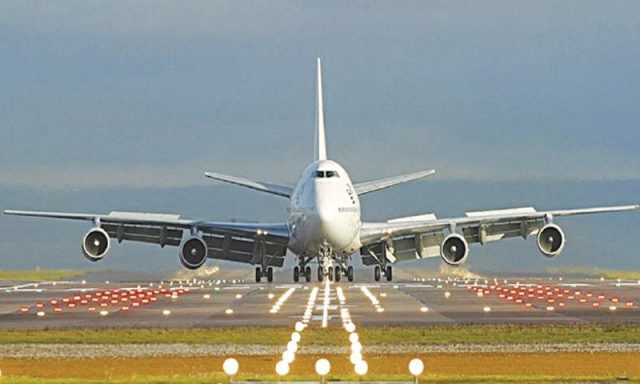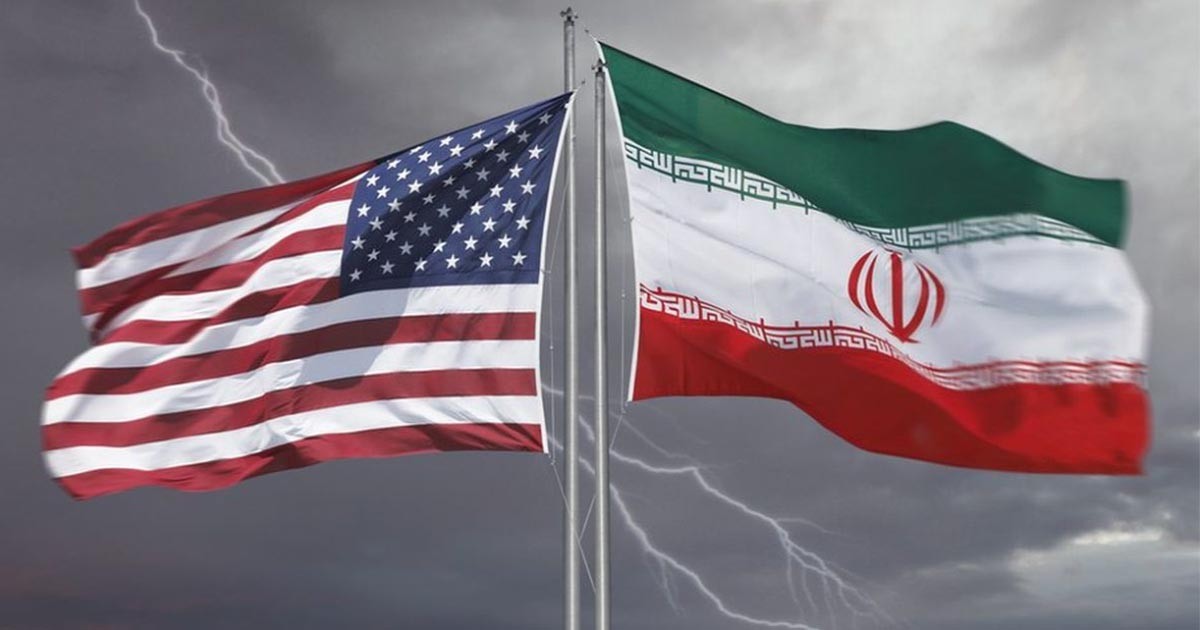The UAE has reportedly cancelled an anticipated tripartite meeting with Israel and the US over a pending F-35 fighter jets sale.
Abu Dhabi cancelled the meeting on Friday in protest of Israeli Prime Minister Benjamin Netanyahu’s opposition to selling F-35s to the UAE, news site Axios reported Monday, citing sources familiar with the subject.
Emirati officials have yet to comment on the reported news. On Aug. 18, the Israeli premier renewed his government’s opposition to selling US F-35s and other advanced weapons to countries in the region “including Arab countries that make peace with the State of Israel.”
Israel opposed to middle eastern countries receiving F-35’s
Earlier this month, the UAE and Israel announced a US-brokered agreement to normalize relations, including opening embassies in each other’s territory.
#America says that it will sell F-35 Fighter Jets to #UAE#Israel says it does not want that to happen and will oppose the sale of these F-35 vehemently
لو جی۔ مزا آگیا
First act of Israel in a line of many to come.
— Mir Mohammad Alikhan (@MirMAKOfficial) August 20, 2020
The UAE will be the third Arab country to sign a peace agreement with Israel following Egypt in 1979 and Jordan in 1994.
“They haven’t agreed to anything other than, in principle, let’s do this campaign to rescue our friend from oblivion,” said Jahshan.
He added that Trump will use the meeting as a “photo-op” for his re-election bid in a move that will also benefit Netanyahu, who is facing unprecedented protests and corruption charges.
Ariel Gold, national co-director of Code Pink, an anti-war feminist group, echoed Jahshan’s remarks, saying that the deal aims to boost all three leaders involved.
She said Trump wants to divert US public attention away from the mounting death toll of the pandemic; UAE Crown Prince Mohammed bin Zayed wants to distract from his country’s human rights abuses, and Netanyahu wants to quell demonstrations against his government.
“So this is a win-win for all three of them, but the big losers are the Palestinian people,” Gold told MEE.
The Deal a bid for re-election
If the goal of the deal were to make Trump look good ahead of November, early results appear encouraging. Still, the move is unlikely to have a lasting impact on the electorate, experts say.
Media pundits and even Democratic politicians heaped praise on the deal. New York Times columnist Thomas Friedman dubbed the announcement a “geopolitical earthquake” that benefits the “pro-American, pro-moderate Islam, pro-ending-the-conflict-with-Israel-once-and-for-all camp” in the Middle East.
“The Israel-UAE Deal Is Trump’s First Unambiguous Diplomatic Success,” read a headline in Foreign Policy magazine. “The UAE-Israel deal is Trump’s first genuine foreign policy success, experts say,” an NBC News story was titled.
Jared Kushner, Trump’s senior adviser and son-in-law, was on a media blitz on Friday, talking up the deal he helped bring to light as a historic achievement.
“Let’s just focus on what actually impacts the people,” Kushner told CNN’s, Christiane Amanpour. “I think that this deal will make the Middle East safer for the American people. It gives us less necessary to have troops in the region.”
He went on to say that diplomatic ties between the UAE and Israel would help mitigate the “jihadist” threat, arguing that militant groups used the Israeli-Palestinian conflict to “radicalise” young people.
Meanwhile, outside the bubble of foreign-policy analysts and pro-Israel politicians in Washington, the average American is dealing with the immediate realities of the pandemic and an economic crisis.
Jahshan said Middle East foreign policy is generally too complicated to be used to tip the scales in a presidential election.
“You cannot base a campaign on it. So, I doubt that the administration will get its money’s worth, so to speak, from this, but they will definitely milk it to death,” he said.
Gold also stressed that voters are more interested in domestic issues. She said even Jewish Americans who support Israel and are praising the deal are mostly reliable Democratic voters.
“I don’t see it necessarily helping Trump. I think it gave him a good distraction for the day at Palestinians’ expense,” she told MEE.
Democratic leaders, who have long advocated normalisation between Israel and the Arab world, welcomed the agreement without mentioning Trump.
Presidential candidate Joe Biden called Abu Dhabi’s decision to establish formal relations with Israel a “welcome, brave, and badly-needed act of statesmanship”.
Although the joint statement on the preliminary agreement credited Trump for the deal, Biden said the declaration “builds on the efforts of multiple administrations to foster a broader Arab-Israeli opening, including the efforts of the Obama-Biden administration to build on the Arab Peace Initiative”.
“It is a timely reminder that enmities and differences – even long-standing ones – are not set in stone, and of the role, American diplomacy can play,” Biden said in a statement.
Eliot Engel, chair of the House Foreign Affairs Committee, said the announcement will contribute to peace and security in the region.
“I hope that this new breakthrough will give courage to other countries to move forward toward normalization and motivate Palestinians to give peace a chance,” Engel, who will be leaving Congress after losing his primary to progressive challenger Jamaal Bowman, said in a statement.
Nancy Pelosi, the top Democrat in Congress, also called the deal “welcome news”.
She added, in a statement: “The House continues to object to steps including unilateral annexation that will undermine future efforts to advance a just, stable and lasting peace in the Middle East.
Palestinian groups have denounced the UAE-Israel deal, saying it does not serve the Palestinian cause and ignores the rights of Palestinians.
Read more: Pompeo to tour middle-east after finalization of UAE-Israel deal
Since 2011, UAE has been seeking to acquire F-35 fighter jets, but the administration of US President Barack Obama refused, while the Trump administration in 2017 agreed to consider Abu Dhabi’s request to enter into initial talks on buying the planes.
Anadolu with additional input by GVS News Desk














